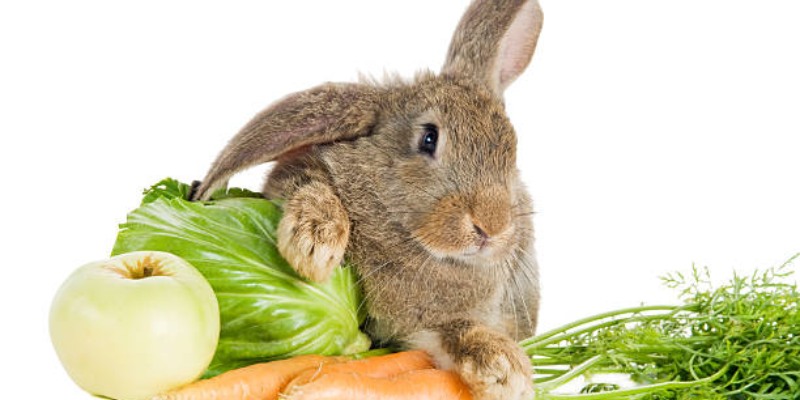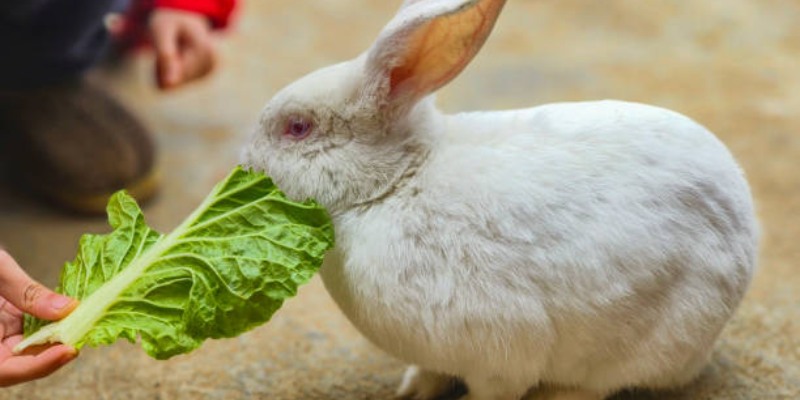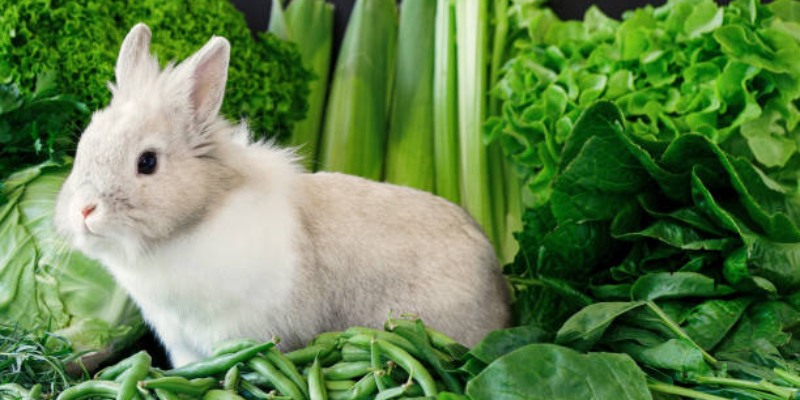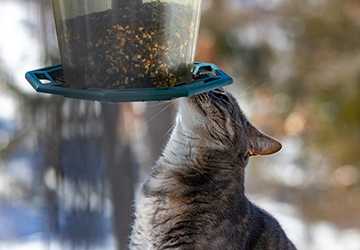Best Fruits And Veggies For Your Rabbit’s Diet
Rabbits are adorable, furry companions, yet they possess sensitive digestive systems. Their food needs careful consideration to ensure they remain healthy and happy. Though hay must constitute 80-90% of their daily food intake, fresh veggies and fruits must be added to introduce variety and vital nutrients. This tutorial discusses the optimum choices for your bunny's meals, supported by expert advice and valuable tips.
The Importance Of Fresh Foods To Rabbits
Rabbits thrive on high-fibre foods to maintain healthy digestion and prevent issues like gut stasis, which can be life-threatening. Fresh veggies and herbs provide water, vitamins, and minerals; fruits offer the odd sweetness as a treat. Not all human foods, however, are safe for rabbits. Knowing which ones are safe and how to serve them is helpful.

Best Fruits For Rabbits: Sweet Treats In Moderation
Due to their sugar content, fruits should be used minimally. Use 1-2 tablespoons per 2 pounds of body weight, 1-2 times weekly. Always de-seed, pit, and stem them, as they are toxic.
1. Apples
Apples are a crunchy, cool snack. Remove all seeds which contain trace amounts of cyanide. Slice thin to avoid being a choking hazard.
2. Berries
Strawberries, blueberries, raspberries, and blackberries are all full of antioxidants. Their small size makes them ideal for portion control. Blackberry leaves are also healthy and safe.
3. Bananas
Bananas are a rabbit's favourite because they are high in potassium. Provide them in small amounts to prevent excessive sugar consumption.
4. Melons
Cantaloupe and seedless watermelon provide fluids. Avoid the rind, as it will irritate the digestive tract.
5. Mango and Pineapple
They are tropical fruits, but need to be taken in small amounts. Remove hard skins and pits.
Vegetables: Daily Nutritional Powerhouses
Leafy vegetables and greens should comprise approximately 10-15% of a rabbit's diet. Provide 1-2 cups per 2 pounds of body weight per day. Vary the offerings to provide proper nutrition.
1. Leafy Greens
Kale and Spinach: High in vitamins A, C, and K. Consume in moderation due to calcium content.
Lettuce: Opt for darker varieties like romaine. Avoid the iceberg, which lacks nutrients.
Dandelion Greens: A fibrous weed found in most backyards.

2. Colourful Vegetables
Bell Peppers: High in vitamin C. Red, yellow, and green varieties are all safe.
Zucchini and Squash: Low in calories and easy to digest.
Carrots: Utilise the tops of carrots more than the root, which is sweeter.
3. Herbs, such as Basil, cilantro, parsley, and mint, are harmless to rabbits. They add taste and help with digestion.
Foods To Avoid: Sneaky Dangers
Knowing what to stay away from is essential in finding safe options. Pass over the rhubarb, onions, garlic, potatoes, and processed foods. These will cause toxicity or stomach upset in small amounts.
Tips For Introducing New Foods
Start Slowly: Introduce one new food at a time. Monitor for soft stools or changes in behaviour.
Wash Thoroughly: Remove pesticides and dirt by rinsing produce.
Prioritise Freshness: Avoid wilted or spoiled items.
Balancing Nutrition And Taste
A rabbit's diet thrives on routine. Hay, like Timothy or Orchard grass, should always be available. Pellets (timothy-based) can supplement in small amounts, but fresh foods and hay are the stars.
Seasonal Treats And Creativity
Rotate fruits and veggies with the seasons. In summer, offer chilled cucumber slices. In winter, try steamed (unsalted) green beans. Get creative with safe combinations, like mixing berries with herbs for a flavour boost.

Ensuring a Balanced Diet For Your Rabbit
Understanding your rabbit's dietary needs ensures a long, healthy life. By prioritising hay, incorporating nutrient-rich greens, and offering occasional fruits, you'll keep your bunny both satisfied and thriving. Always consult a vet for personalised advice, especially if digestive issues arise.
This guide equips you with the knowledge to make informed choices. Remember, every rabbit is unique—observe their preferences and adjust portions accordingly.




